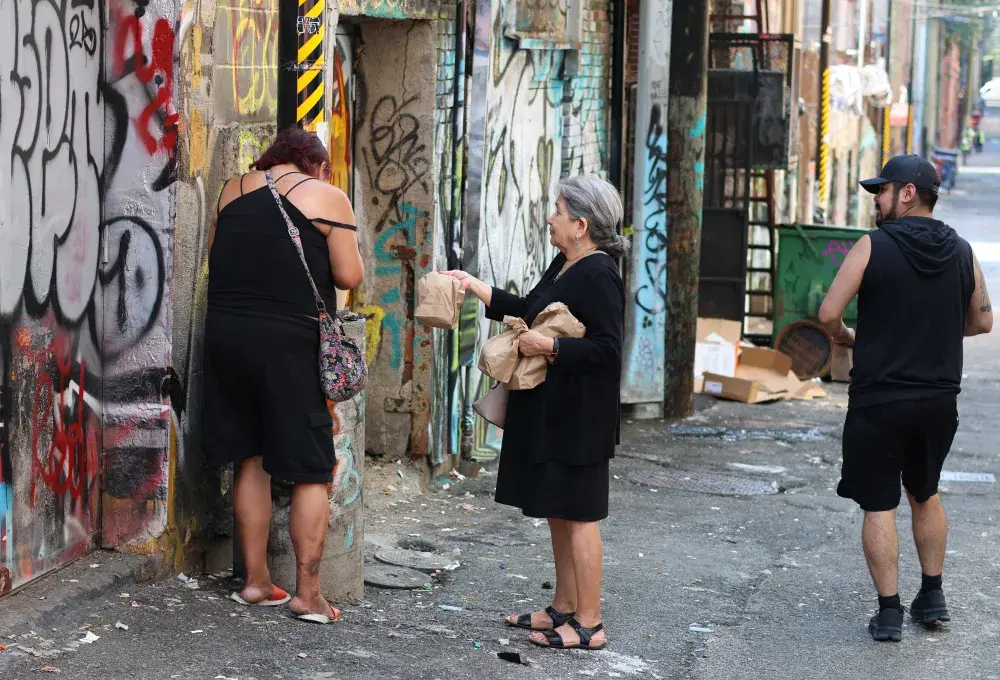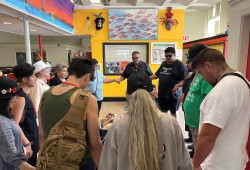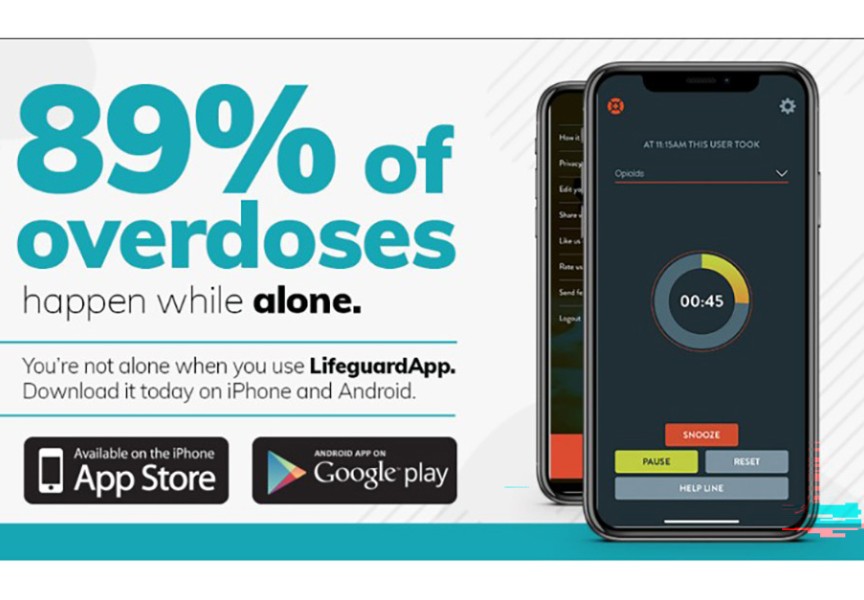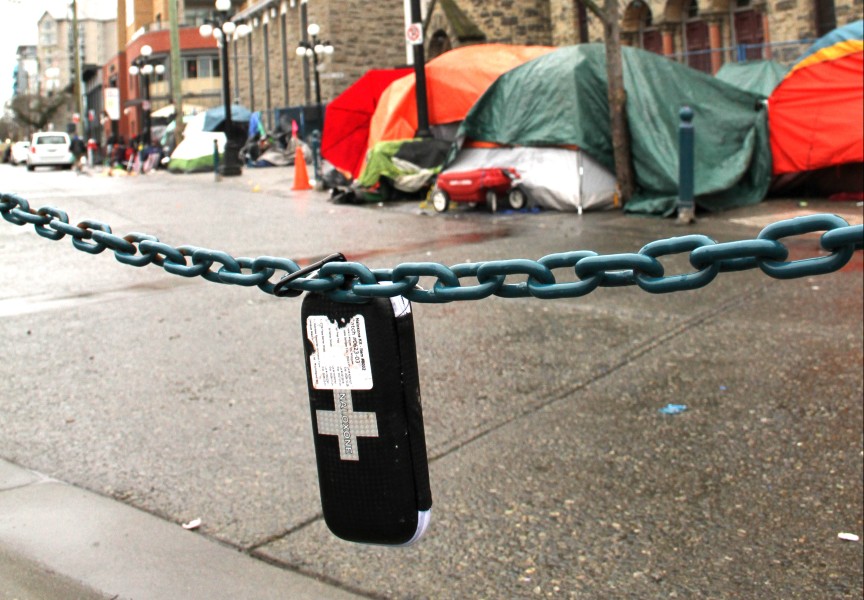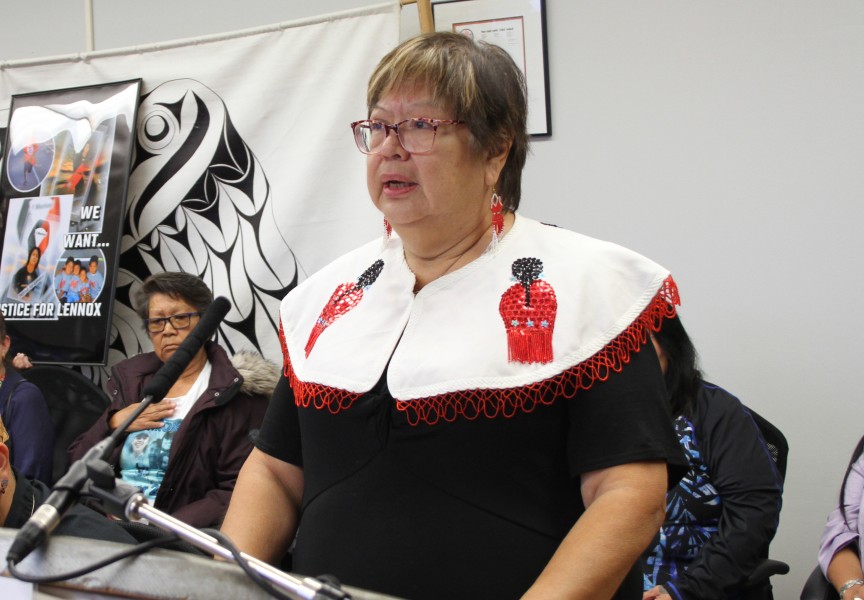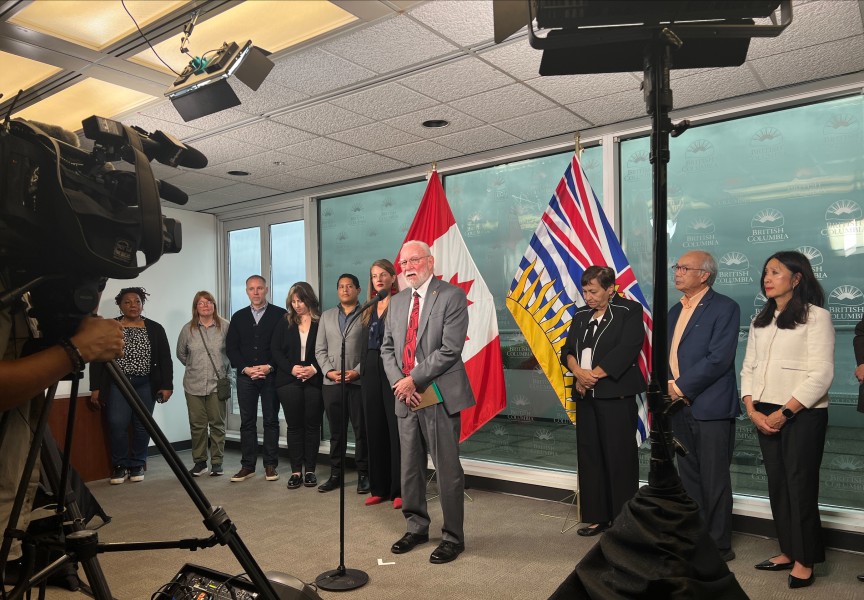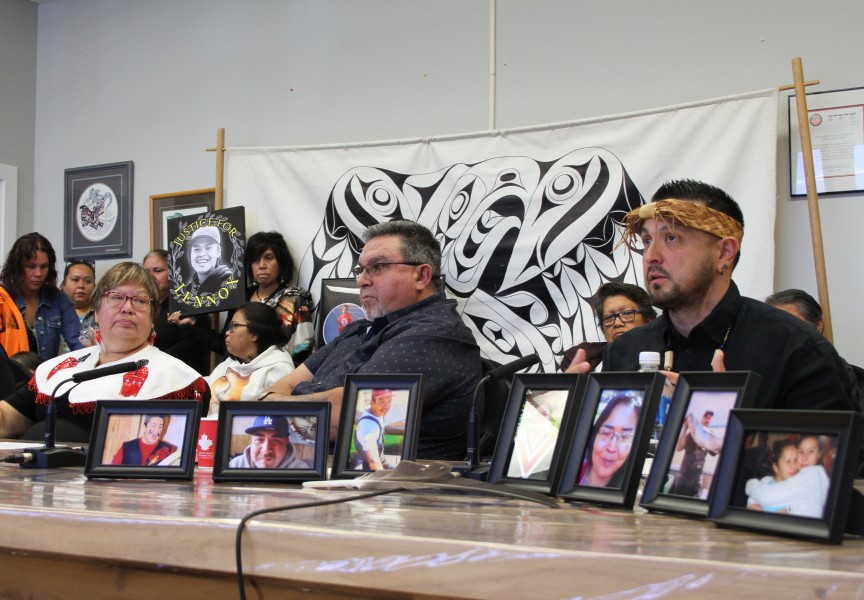It’s a $10 taxi ride from Vancouver’s Fairmont Waterfront to East Hastings and Main – the epicenter of Canada’s drug poisoning crisis that is disproportionally impacting Indigenous People.
At the Aboriginal Front Door Society, kitty corner from historic Carnegie Community Centre and the heart of Downtown Eastside (DTES), hope floats as smoke from a traditional smudging lingers in the room and a team of volunteer outreach workers rallied for a weekly brown bag lunch distribution.
Every Wednesday, over 350 souls living on the DTES receive a bologna sandwich, granola bar, fruit cup and juice box.
“Food brings us together. It’s part of our teaching,” said James Harry, executive director of the All Nations Outreach Society and a proud Haisla Nation member.
“It’s a little bit of an Indigenous joke that it’s a traditional food, the bologna sandwich. By doing this we are also bringing a smile to their day, maybe their week. We are letting them know that they matter and that they are not forgotten,” he continued.
“By doing this we are seen in the community and they know what we are doing and why we are there. We still have to get past that stage of trust. They’ve been hurt so many times or even that one time that’s done the damage, so we gotta gain their trust. Once that trust is gained, we start talking about detox. We start talking about recovery. We start talking about the possibility of, ‘Would you like to go home?’” said Harry.
The disparity between First Nations people and other B.C. residents is the largest it has been since the province declared the toxic drug crisis a public health emergency in April 2016. According to the most recent data released by the First Nations Health Authority (FNHA), First Nations people died at 6.7 times the rate of other B.C. residents due to toxic drugs in 2024.
Harry founded the All Nations Outreach Society in 2020 as a grassroots non-profit rooted in Indigenous ways of caring and collective responsibility. What started as 12 meals shared on the streets with family, now serves 70,000 meals annually and connects with over 360 individuals each week.
But, with recent cutbacks and the high cost of food, Harry says his non-profit is in survival mode, while the number of overdoses seem to just keep growing. They had to remove the fresh piece of fruit and new pair of socks from each lunch bag to save money.
“Our people are going through their worst. They are down there for a reason. They are running. They are running from their traumas. They are running from their abuser. Unfortunately, they run here, and this is the last place they will ever see,” he said.
The Aboriginal Front Door Society (AFDS), a lifeline for the DTES that provides culturally safe care for more than 600 community members, and Watari Counselling and Support Services are also having a tough year with key provincial funding for drop-in services being pulled.
AFDS executive director Chris Livingstone says his “fingers are crossed” that their robust campaign to restore essential government funding will be met with good news.
“Services offered by Watari and Aboriginal Front Door Society are very important for the health and well-being of people in the Downtown Eastside,” said a spokesperson for the Ministry of Housing and Municipal Affairs in a Sept. 2 email to the Ha-Shilth-Sa.
“The Province has been engaged through the summer in conversations about these important services. We aim to have more information to share soon about funding for these organizations,” reads the email from the ministry.
Nuu-chah-nulth Tribal Council (NTC) leadership is stepping up to provide support for any Nuu-chah-nulth members living on the DTES after Harry reached out to Les Doiron, NTC vice president, on numerous occasions, after meeting someone on the DTES who is from one of the Nuu-chah-nulth communities.
“James (Harry) advocates on their behalf with Les, who will then contact the family or the First Nation where the person comes from, to assist in helping the member make plans to return home,” said NTC executive director Florence Wylie.
“We are in the process of finalizing job descriptions for two Urban Outreach Workers, who will be working in the DTES area along with the All Nations Outreach Society staff. Ideally, these positions will be staffed within the next few months,” she said.
Harry says it’s absolutely a long-term goal to reunite Indigenous People living on the DTES with their home territory.
“When asked, would you ever consider going home, I hear, ‘I miss home. I miss hunting. I miss fishing. I miss family dinners.’ That would be the ultimate goal, but for some people it’s not a reality for them,” he said.
Squamish (Sḵwx̱wú7mesh) Nation Elder Florence Williams joined NTC’s Doiron and Wylie on an Aug. 27 lunch distribution with Jade Doolan, operations director with the All Nations Outreach Society. Williams left the DTES that day more motivated than ever to bring a treatment and wellness centre directly onto the Capilano Reserve to “help her people transition back into community.”
“They are living and breathing beings that need humanity,” says Williams.
Harry used to be an addict living in an alley on the DTES. His sobriety birthday is March 25, 2014.
He says there were two moments that put him on the road to recovery; the first was when he saw an old party friend drive up in a brand new car with a big smile on his face. His friend had changed his life around, Harry recalls.
“I was walking home with a bag full of basic groceries,” said Harry. “That hit a chord for me there.”
The second, the biggest, was when he came home from a three-day bender to see the sad look in his kids’ eyes.
“I don’t want to be the reason for those hurt eyes anymore. It gives me motivation each and every day,” Harry said.
His hope is that every person he connects with, that every person the All Nations Outreach Society reaches, can feel the way he feels now.
“We all deserve it. Traumas shouldn’t be our main focus in our life,” he said.

